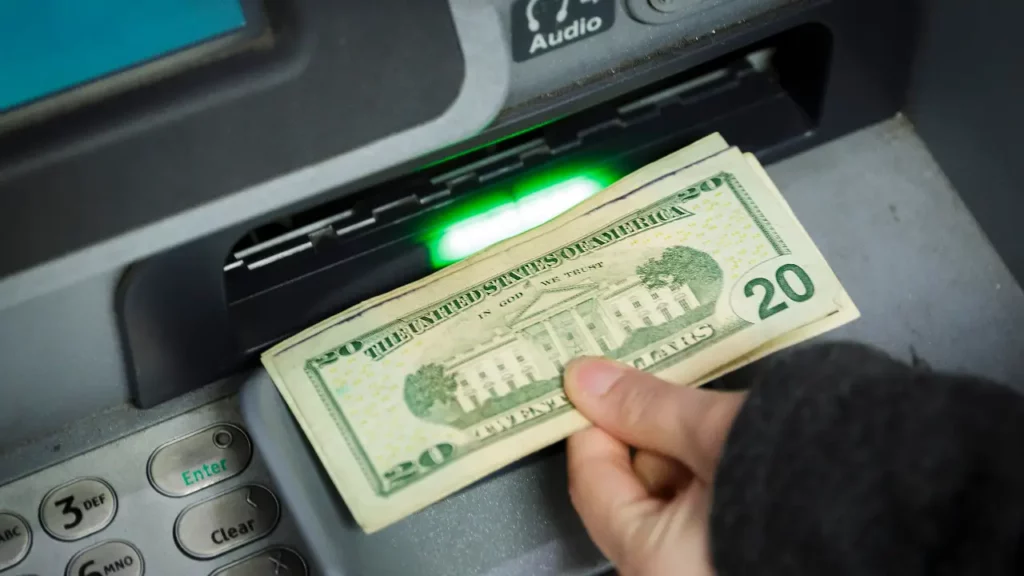
Early Paycheck Access - What It Is and How It Can Benefit You
The financial “what ifs” of life become less iffy when you can get your paycheck sooner than expected.
Unlike earned wage access programs, which function like payday loans, this solution connects directly with your employer’s payroll system and works as an employee benefit. Here are a few ways this program could benefit you:
You’ll Have More Money
When you get paid early, you’ll have more money to cover bills and expenses. It can also allow you to put money away in a savings account, which can help you build an emergency fund and avoid expensive fees like overdrafts and late payments.
When bills and other expenses eat into your take-home pay, it can take time to keep up with the demands of life. A new study by Bankrate found that most Americans live paycheck to paycheck, and when those bills fall on days other than payday, it can throw off their budgets.
Some apps and programs offer paycheck advances, known as on-demand wage access. These programs advance funds to employees and then withdraw them back from the employee’s bank accounts on their next payday. This method can be expensive for the employer and confusing for employees who must pay back their wages to these on-demand wage access programs.
Credit unions and banks can give you earlier access to your direct deposit paycheck through Early Pay. This service typically lets you see the funds in your checking account two days before your pay date, giving you more flexibility to cover urgent expenses and avoid overdrafts and other costly fees.
You’ll Have More Time to Budget
Unlike traditional checks that require you to submit a mobile deposit or go to a bank branch to cash, most electronic direct deposits are available immediately once your payor sends them to your bank. Early access to your paycheck can allow you to transfer funds from your checking account to savings or another account to cover any urgent payments (like student loans or utility payments) before they’re due, saving you the costs of late fees and penalties.
Some earned wage access apps — payday advance or payday loan alternatives — are integrated directly into employers’ payroll systems and allow employees to take out some of their wages before their normal payday, leaving them with a smaller paycheck on the day they normally get paid. These types of programs have been criticized for their similarity to payday loans, with some workers being unable to repay the advances when their paychecks arrive and falling into debt cycles.
But if you’re an employer who offers your workers on-demand access to their wages, there are ways to minimize the risk of this kind of debt cycle. For example, some companies offer low or no fees to workers for using their early wage access, so they’re not paying more than they should to make ends meet.
You’ll Have More Time to Save
In addition to helping with day-to-day expenses, getting your paycheck a few days early can give you more time to save. Whether for an emergency, a vacation, or a rainy day, savings can help you reach your goals.
With early direct deposit, you can get your money in your bank account up to two days before payday.1 That’s enough to cover a few surprise expenses that might come up during the month and can help you avoid paying late fees or overdraft charges.
Banks, credit unions, and prepaid debit card providers offer early access to paycheck funds through their products. Some employers may also have a program, often called EWA or Earn In Advance, that lets employees access some or all of their wages before payday.
While these programs can be useful, they’re not without their drawbacks. The fees associated with these services can add up over time and may cause financial hardship for those living paycheck to paycheck. Some companies have begun to subsidize these fees to avoid them altogether.
Ultimately, it’s up to employers to decide if these programs are right for their workers. They should carefully consider their options and ensure that their employees are not paying too much for the service or risk falling into debt due to overuse.
You’ll Have More Time to Spend
Getting paid a day or two earlier can make all the difference. It gives you control over your money, reduces financial stress, and puts you in a better position to budget, plan, and make smarter choices with your spending.
Early direct deposit, offered by banks and credit unions, is one of the simplest ways to access your paychecks. The way it works is that employees provide their bank account information to their employers, who then send payroll instructions through the Automated Clearing House (ACH) system to their banks. Then, the bank credits the employee’s checking or savings account with the ACH funds.
Credit unions often offer this feature to entice new members, while some big banks, have started to offer it. Consumer advocates say that if used correctly, earned wage access programs can help consumers avoid the high fees associated with payday loans and other short-term lenders.
However, experts warn that even if used responsibly, early direct deposit won’t help people living paycheck to paycheck. Instead, they recommend building an emergency savings fund to save at least 3 to 6 months’ worth of expenses and look for other ways to generate cash, such as selling unused items online or at local consignment shops.
Read more: